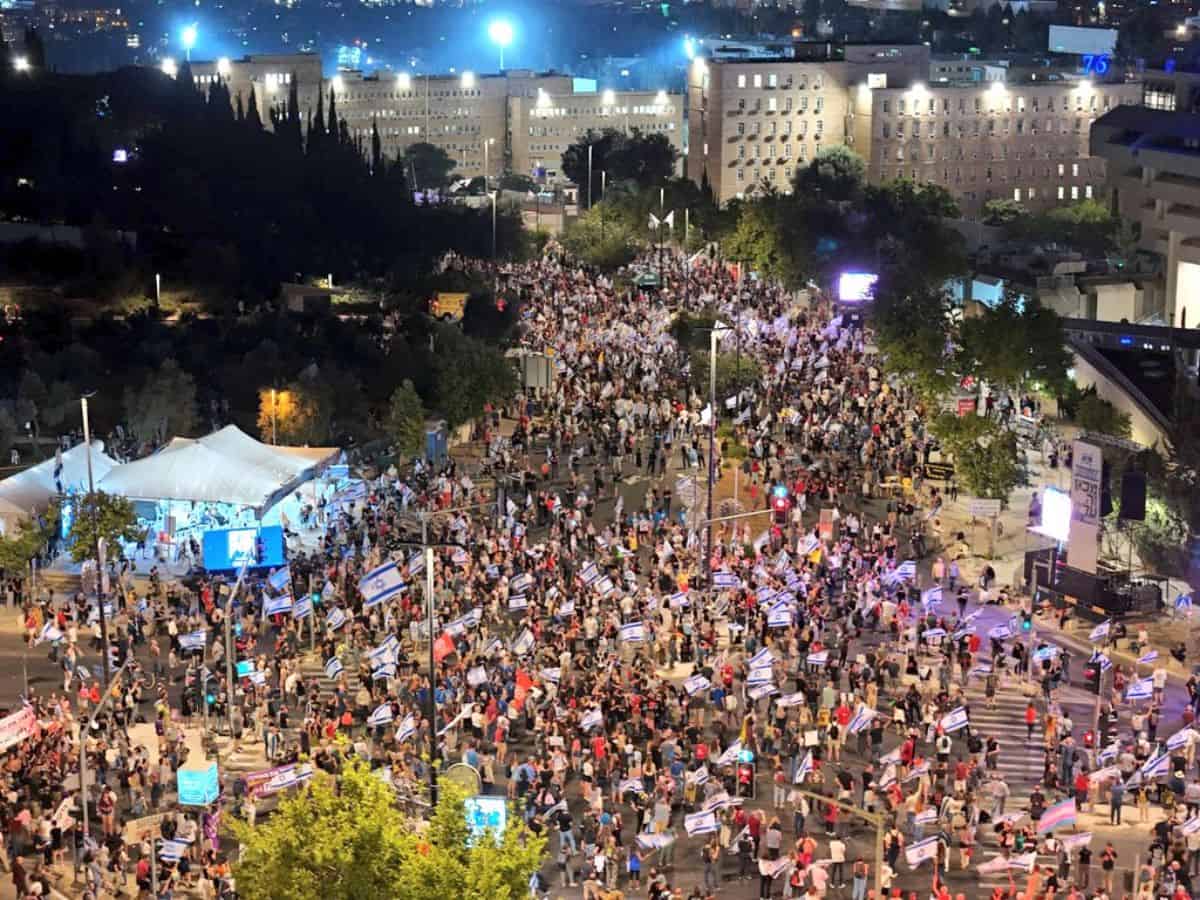
Tens of thousands of protesters gathered in front of the Knesset (Israeli Parliament) demanding early elections and the release of hostages in Gaza, The Times of Israel reported.
The anti-government protesters gathered in front of the Israeli Parliament and later marched towards Prime Minister Benjamin Netanyahu’s home, where violent clashes broke out with police, with at least three people requiring hospitalization.
Authorities stated that they had permitted the protest to continue until a few of the attendees attempted to scale the crowd control barriers erected around Netanyahu’s home.
Police said at least nine people were taken into custody.
Outside Netanyahu’s house, demonstrators were again met with the threat of a water cannon by police, who they claimed were using excessive force, The Times of Israel reported. The demonstrations were part of the second day of what has been branded a “week of disruption” by various protest groups.
There were also chants calling for fresh elections and accusing Netanyahu of being “guilty” of the October 7 failures during the protests.
Netanyahu has stated time and time again that elections shouldn’t take place while the conflict in Gaza is still going on. The next general elections in Israel are formally scheduled to be in October 2026, according to The Times of Israel.
The conflict in Gaza escalated after the October 7 attack by Hamas, where about 2,500 fighters from the Palestine resistance group breached the border into Israel from the Gaza Strip, leading to casualties and the seizure of hostages.
Israel has characterised its Gaza offensive as targeting Hamas’ infrastructure to eliminate the entire terror group while making efforts to minimize civilian casualties.
Amid extreme disagreements over the war in Gaza, two of the members of Netanyahu’s war cabinet, Benny Gantz and Gadi Eisenkot resigned last week.
Following this, in a new development, Israel’s Prime Minister Benjamin Netanyahu dissolved his war cabinet on June 16.
Both the cabinet ministers were former military chiefs and they have been seen as voices of moderation in the five-member body, which was formed in October after the Hamas terror group attacked Southern Israel.
The establishment of this small war cabinet was a core demand of National Unity Party chair Benny Gantz to join the coalition.
Gantz, one of the three cabinet members, quit the coalition last week, and took Gadi Eisenkot along with him, one of the three war cabinet observers.
Since the emergency unity government is no more, the war cabinet that emerged as part of that arrangement is no longer relevant, the PMO official stated, according to The Times of Israel.
Gantz’s decision came at a time when the war between Israel and Hamas is in its eighth month, and the situation in West Asia remains fragile.
“Netanyahu is preventing us from advancing towards true victory. That is why we are leaving the emergency government today, with a heavy heart but with full confidence,” Gantz said at a televised news conference last week.
“There should be elections that will eventually establish a government that will win the trust of the people and be able to face challenges,” Gantz said, as he called for early polls in the country amid growing outrage among citizens due to the ongoing war.
(With inputs from ANI)
